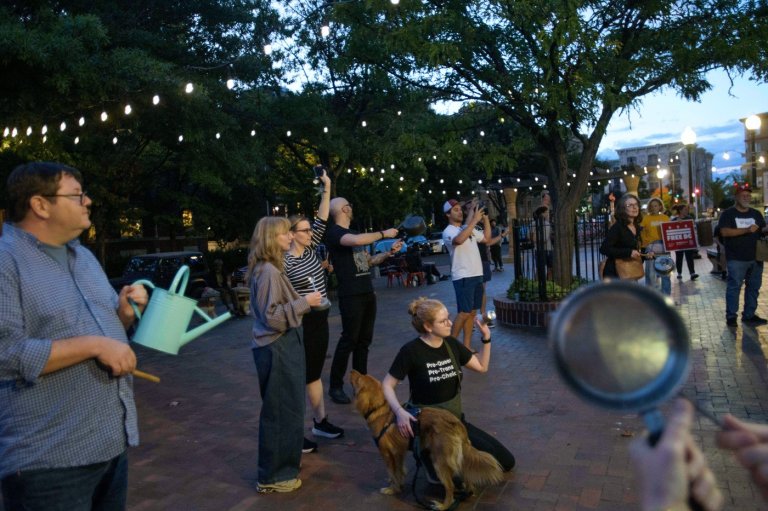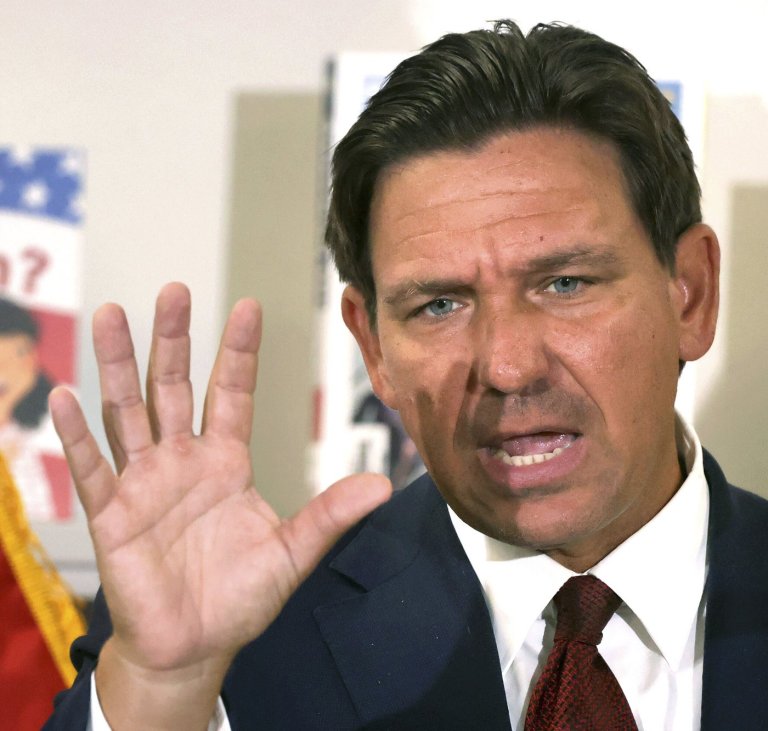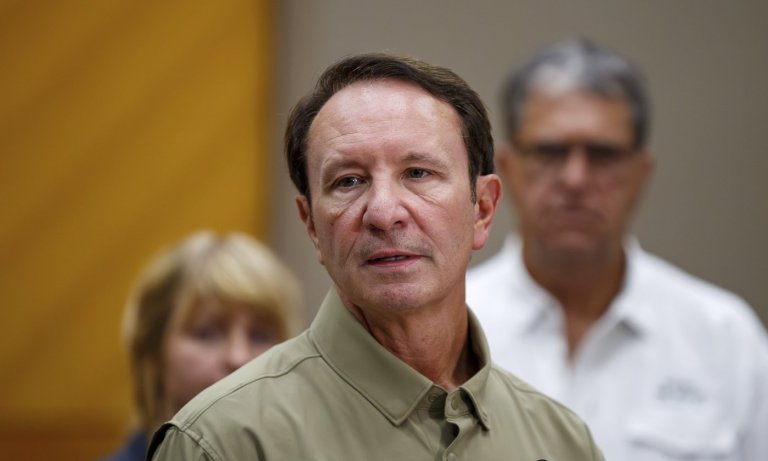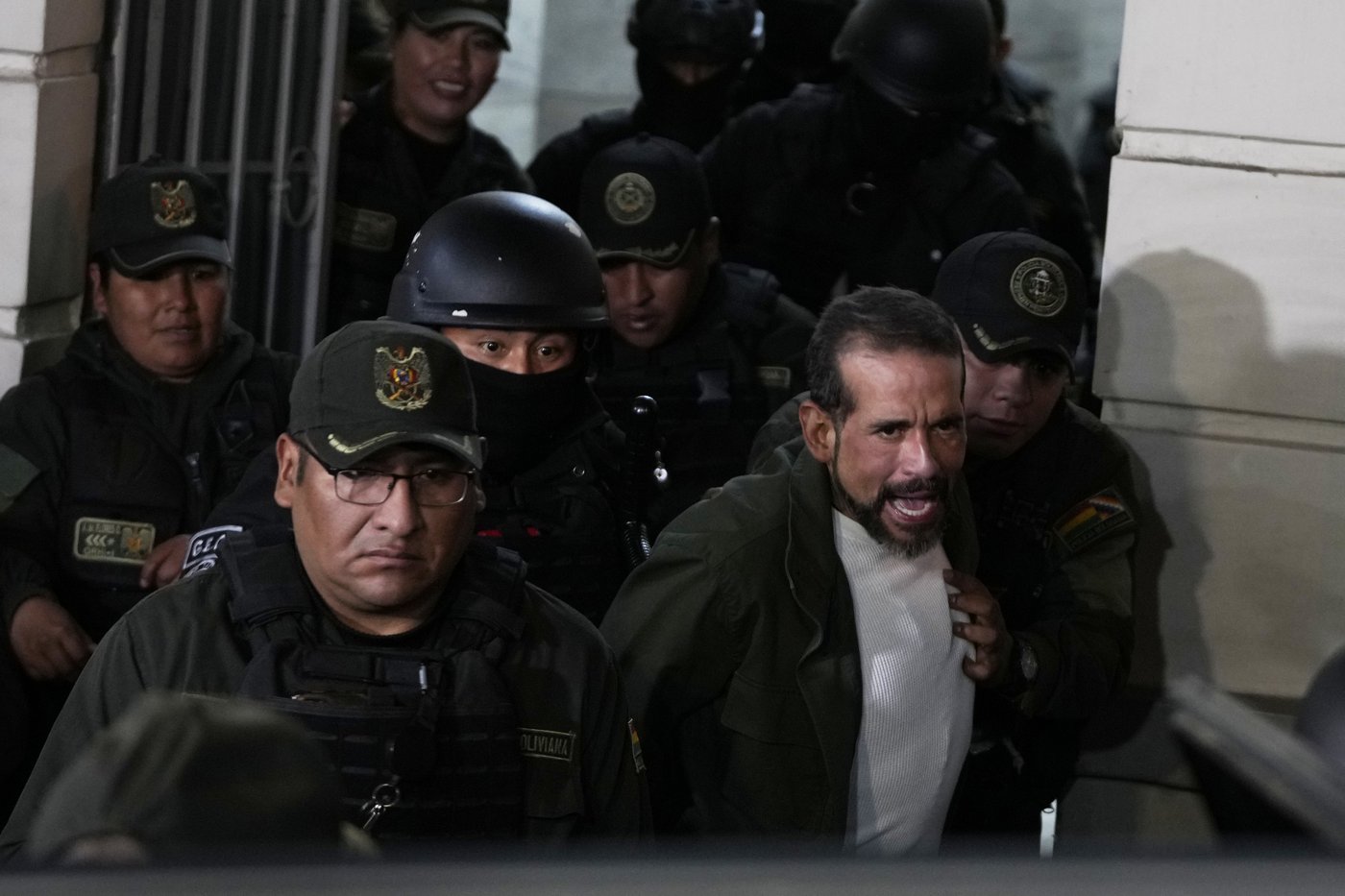
Prominent Bolivian opposition leader to be transferred from jail to house arrest
LA PAZ, Bolivia (AP) — Bolivian opposition leader Luis Fernando Camacho won his release to house arrest Wednesday after two years and eight months of pretrial detention, a surprise move that empowered his supporters who long criticized his prosecution as unjust and disheartened his detractors who complained of political pressures overriding procedural tradition.
Wednesday’s court order applied to the last of two cases that landed Camacho, the conservative governor of Bolivia’s easternmost province of Santa Cruz, behind bars pending a trial. He had already been ordered freed to house arrest on Tuesday in the most explosive case, alleging his involvement in violent unrest over the disputed 2019 reelection of socialist former President Evo Morales.
The ruling on a different but related case Wednesday confirmed that the suspended governor would be transferred out of jail to house arrest with work-release privileges, which allow him to resume his duties as governor of Santa Cruz for the first time since his 2022 arrest.
Release to house arrest doesn’t mean acquittal
His transfer does not mean acquittal. Camacho still faces trial in these two cases and charges in other investigations.
But his release from prison to a much milder form of incarceration injects a potentially volatile new element into Bolivia’s politics after a general election earlier this month signaled the end of nearly 20 years of dominance by Morales’ Movement Toward Socialism, or MAS party.
The firebrand Christian leader of a powerful Santa Cruz business association, Camacho gained prominence while leading protests against Morales in 2019 that ultimately forced Bolivia’s first Indigenous leader to resign under pressure from the military and flee to exile.
The order did not specify when the transfer would take place but Camacho’s lawyer said it could happen as early as Friday.
Allegations of political persecution dog both sides
The judiciary’s sudden moves in long-stalled cases come as Bolivia’s right-wing opposition prepares to return to power for the first time in decades. A presidential runoff in October will pit centrist Sen. Rodrigo Paz against right-wing former President Jorge Quiroga.
Quiroga in particular has called for the release of his jailed allies, including Camacho as well as caretaker interim President Jeanine Añez, who assumed the presidency in 2019 in what Morales’ supporters call a coup.
Both Añez and Camacho are divisive figures.
Although Añez vowed to steer Bolivia to new elections in which she wouldn’t run following her 2019 takeover, she swiftly cemented her hold on power, transforming the country’s policies, violently cracking down on protests and provoking Morales’ Indigenous supporters.
After elections in 2020 vaulted Morales’ handpicked successor, President Luis Arce, to the nation’s top job, the same judicial system that Añez wielded against Morales and his followers sentenced her to 10 years in prison on charges of sedition and terrorism stemming from her takeover.
Camacho was scooped up on the same charges over his pivotal role in pressuring Morales to quit the presidency in 2019. At the time, he called on all MAS lawmakers to resign and even proposed that an unconstitutional junta take power before ultimately backing Áñez’s government.
Unlike Áñez, Camacho was never tried.
Arrested in 2022 as he led a 36-day strike against Arce’s government in Santa Cruz that shut down Bolivia’s most populous and economically vital region, Camacho faced separate charges of criminal association and illegal use of public property.
Every time he maxed out the legal detention period, a prosecutor extended his jailing in a widely criticized tactic that Bolivia’s judiciary often deploys in high-profile political cases.
Cases scrutinized after opposition wins first election in decades
Judges on Tuesday and Wednesday weighing the 2019 upheaval case and 2022 strike case against Camacho determined that keeping him in jail exceeded the legal limits for a detainee awaiting trial.
It comes after Bolivia’s Supreme Court last week issued a rare ruling ordering all judges to review the legality of pretrial detention in the cases against Añez and Camacho, as well as in the case of Marco Antonio Pumari, another opposition leader held over his role in the 2019 crisis.
As news broke of the judge’s ruling late Tuesday, crowds of Camacho’s supporters in central Santa Cruz erupted in cheers.
The court also ordered the unconditional release of Pumari, a former civic leader in Bolivia’s southern town of Potosí and Camacho’s running mate in the 2020 elections, who has been detained since 2021.
Quiroga hailed the release orders for Camacho and Pumari, writing on social media that “justice cannot be an instrument of revenge.”
On Monday, a Bolivian court annulled the trial against Áñez over her involvement in the killing of dozens of protesters in 2019, ruling that she is entitled to a special judicial process for former heads of state handled by Congress, not an ordinary court. A separate hearing in the case was pushed to Friday.
Bolivia’s divisions on vivid display
Outside the courthouse in Bolivia’s capital of La Paz, protesters — incensed by the release of Camacho, who they consider indirectly responsible for the killing of 37 people following Morales’ 2019 ouster — chanted “Justice for the victims” and “Without justice there is no democracy.”
“Justice must be impartial, whoever must pay, must pay, but justice has to be done,” Gloria Quisbert, a representative of the victims, told local TV channels. She condemned the dismissal of Áñez’s trial as bringing “new pain” to the victims.
Revelers — thrilled by the long-awaited release of the most prominent symbol of opposition to MAS rule — shouted “Freedom for Camacho” and tried to touch and take selfies with the governor as he emerged in handcuffs and his governor’s sash. Many flew or took 16-hour bus rides from Santa Cruz to attend the hearing in La Paz.
Security forces in riot gear struggled to contain the competing rallies.
“This is the first step toward freedom,” Camacho said after the court decision. “The elected representatives of justice today begin to restore the rule of law.”
___
DeBre reported from Buenos Aires, Argentina.
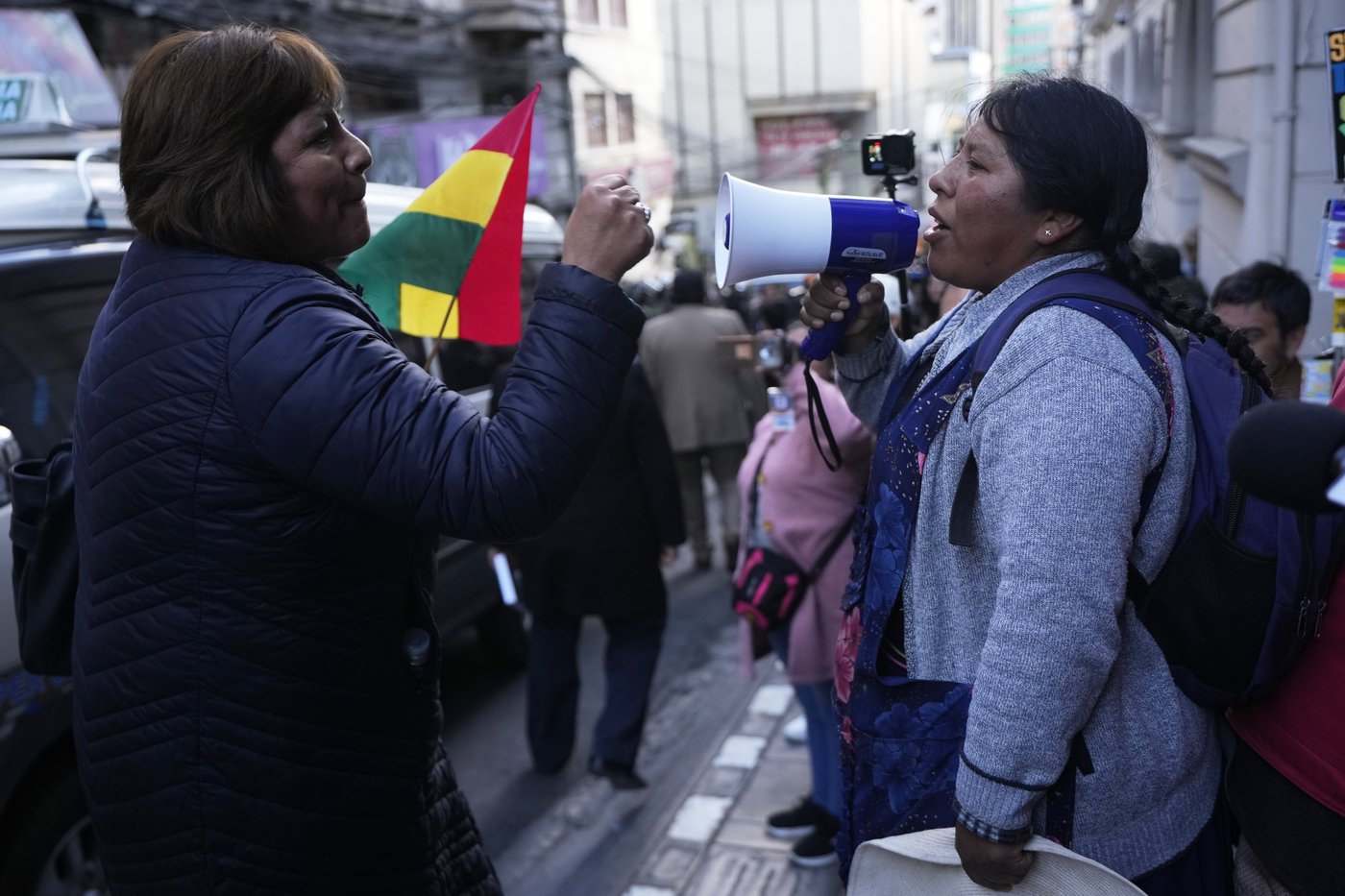
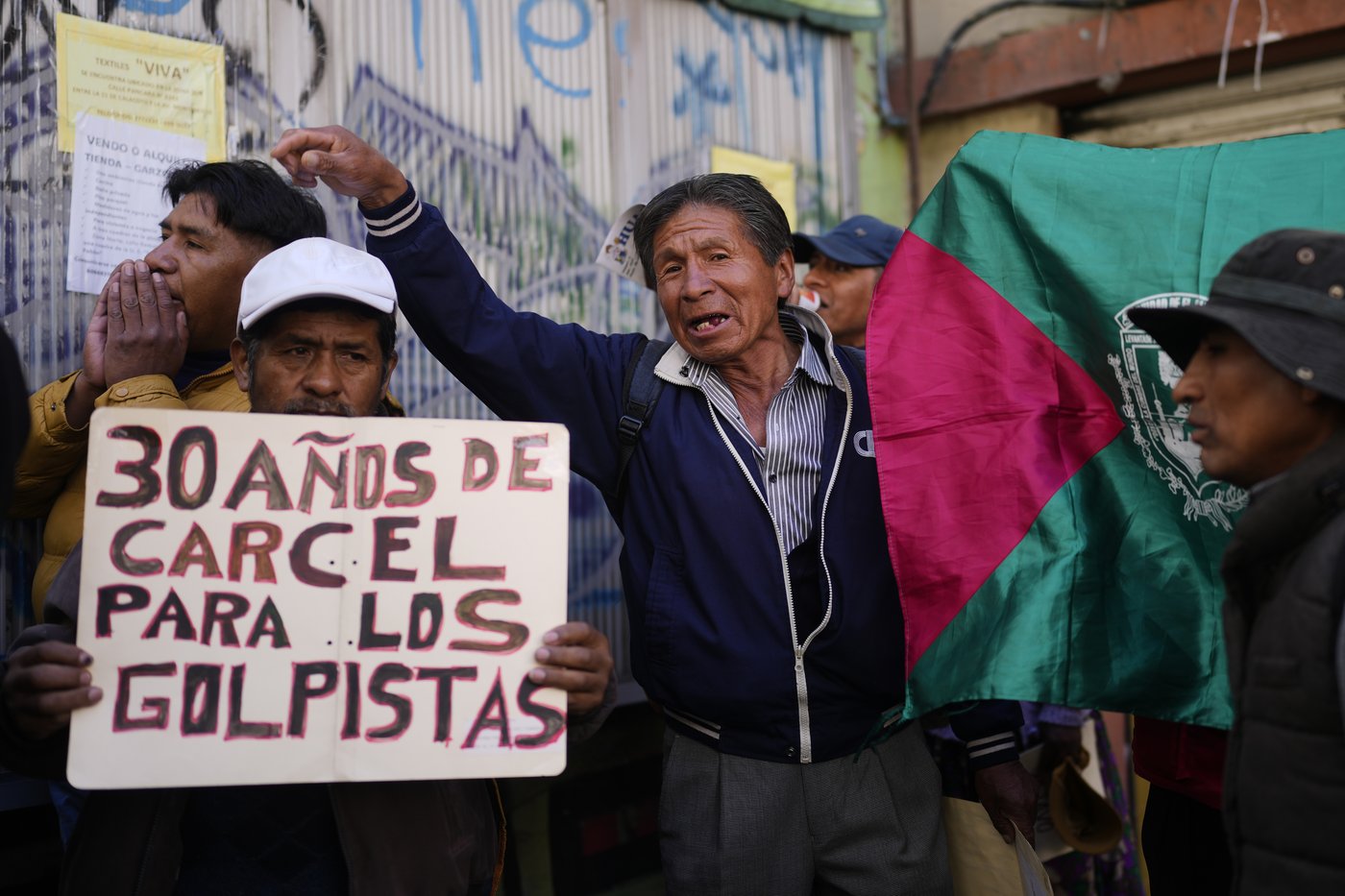
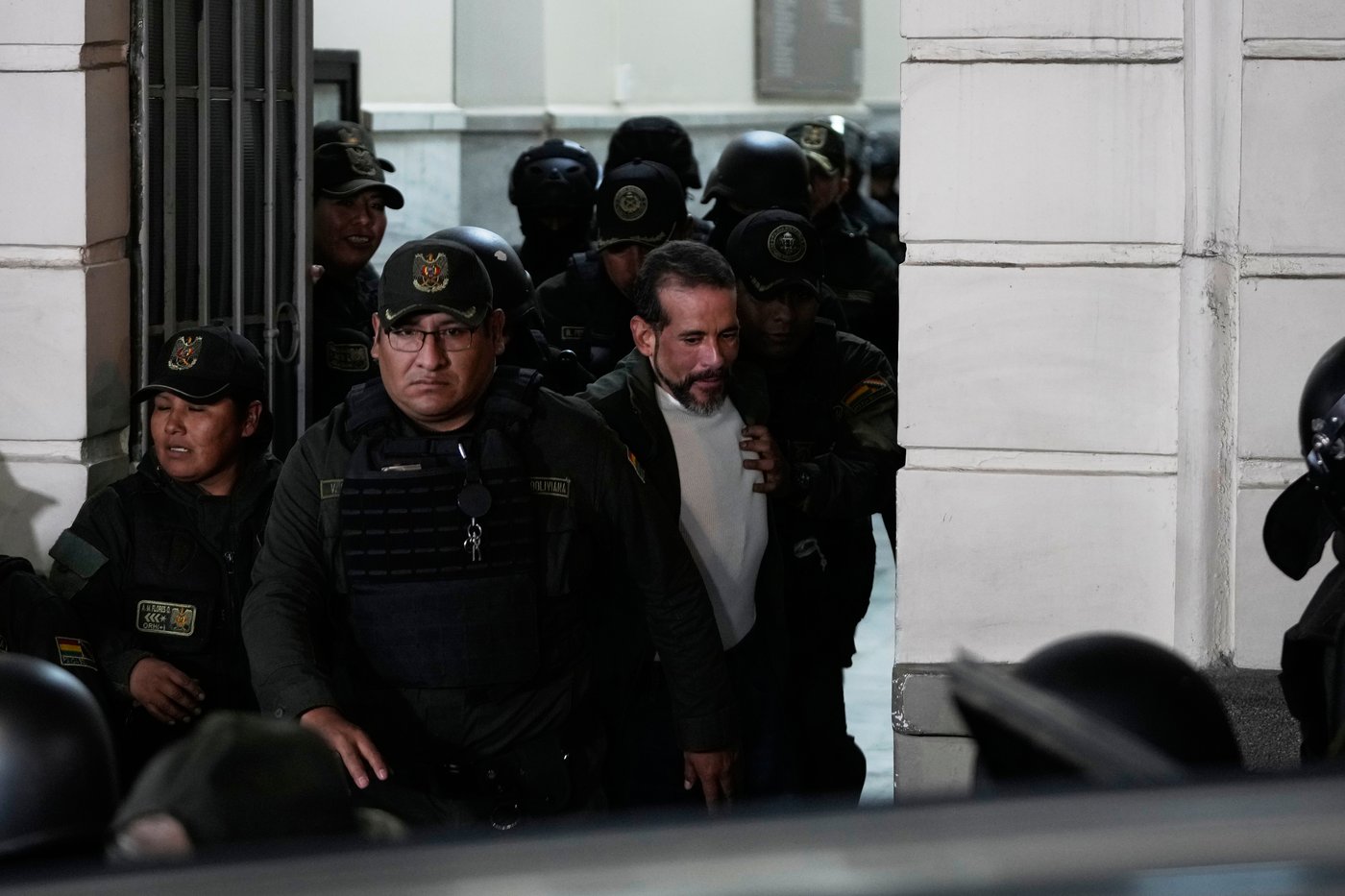
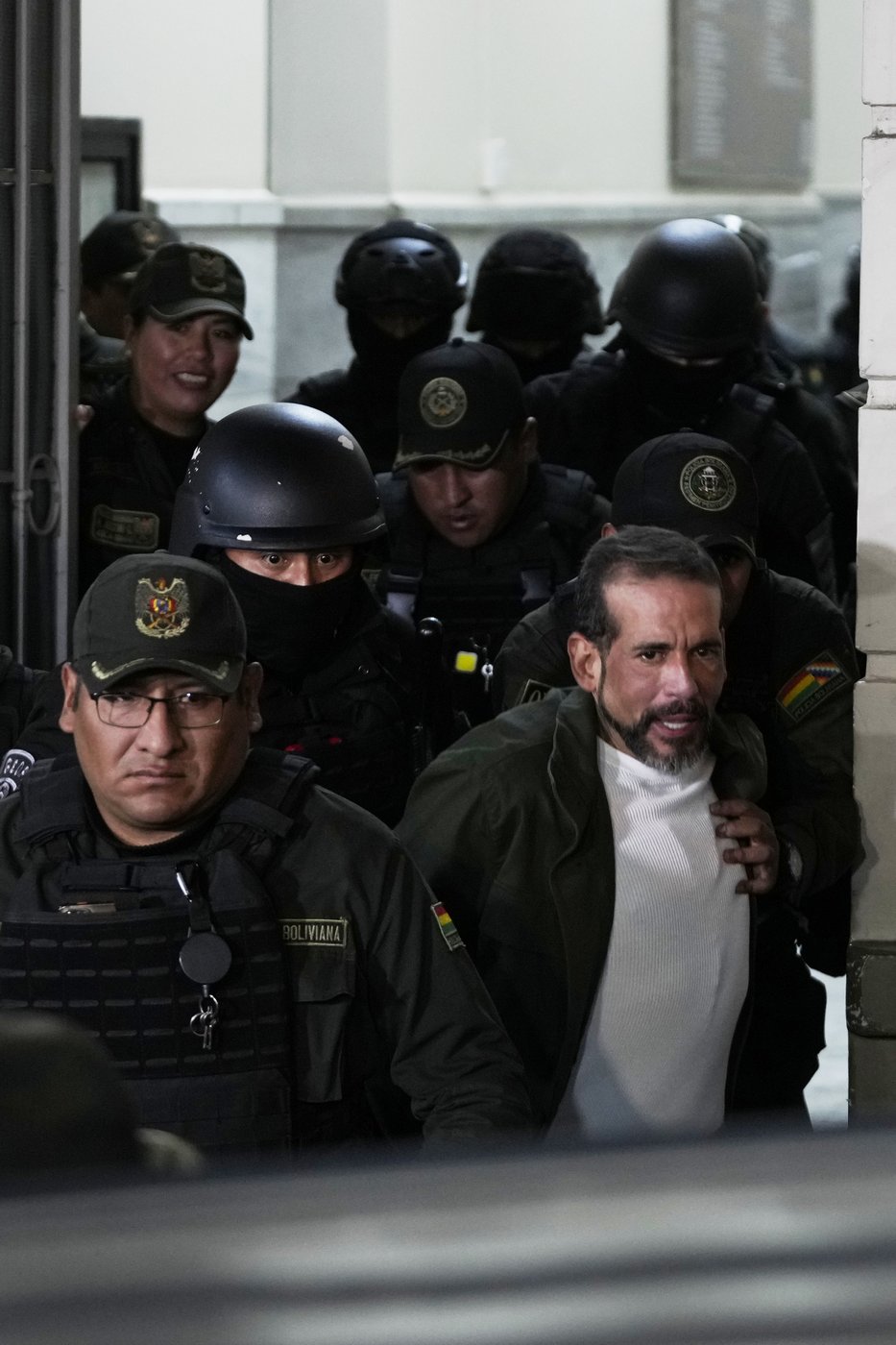
Join the Conversation!
Want to share your thoughts, add context, or connect with others in your community?
You must be logged in to post a comment.













